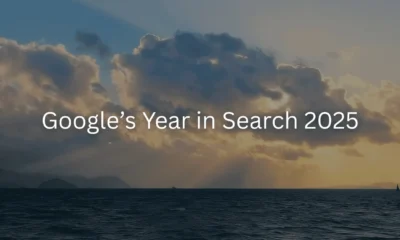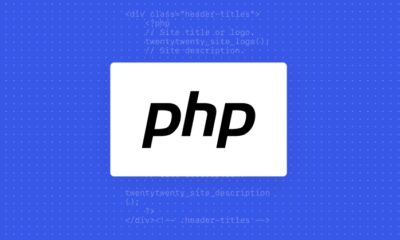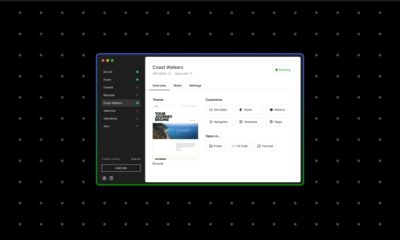NEWS
Top GMB Insights Trends Enterprise Brands Need to Know via @sejournal, @martinibuster
New research from Rio SEO shows dramatic effects on local search and offers insights into how to be more effective in monitoring search habits at the local level and leverage those changes for better economic performance.
Rio SEO tracked consumer trends across over 200,000 locations in a range of verticals.
The report covers these categories.
- Business Services
- Financial services
- Sit-down restaurants
- Quick Service Restaurants
- Retail
- Healthcare
- Hospitality
- Massive Impact
Advertisement
Continue Reading Below
It’s widely known that the impact on business was massive. But this new research shows how the pandemic affected website clicks, click to call, and clicks for driving directions.
According to Rio SEO:
“Without question, COVID-19 had a massive impact on the local search landscape in 2020. Across the over 200,000 locations in all verticals that Rio SEO tracks, local searches were volatile, with initial drops, recovery, more volatility, and a gradual return to pre-pandemic levels.
The verticals that were able to pivot to respond to the uncertain economic climate weathered the pandemic storm better, but no sector was left untouched and unaffected.”
Advertisement
Continue Reading Below
Total Views
All verticals experienced drops in total views from February through April.
Other metrics also reported declines but it was total views that had the biggest declines.
Recovery began in May and by the fourth quarter all metrics stabilized at similar percentages of growth and decline.
Click to Call
Click to Call was a big performer during the pandemic.
The increase “skyrocketed” in March mostly across the board in all verticals, peaking in April and May 2020.
The phone call clicks metric was particularly volatile for most verticals, it ended the year at a higher rate year over year for sit down restaurants.
Financial Services
Financial services experienced a significant decline in views from March through May, at which point it has continued to rise. But it has not yet returned to pre-pandemic levels.
However total searches and clicks have fared better, ending the year higher than the pre-pandemic January 2020 figures.
Business Services
Business services suffered the during the pandemic, no doubt a result of the work from home phenomenon.
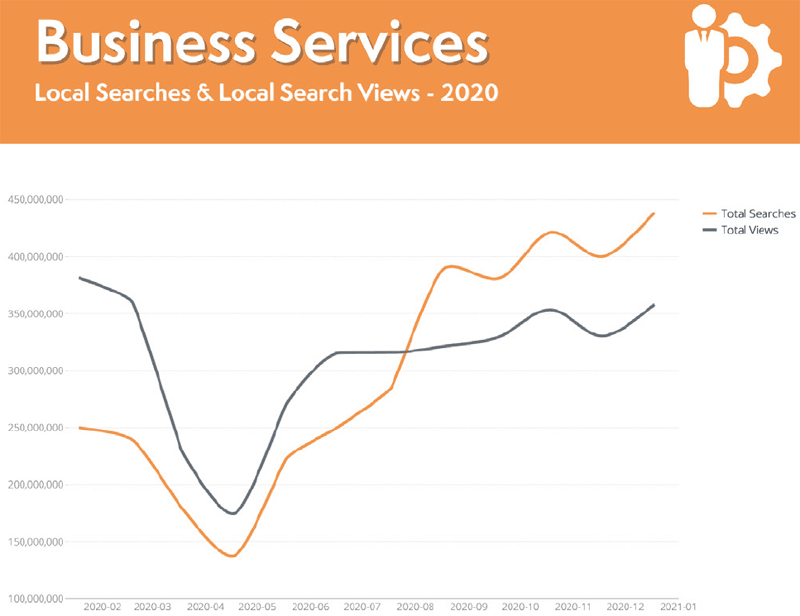 Source: Rio SEO internal data for 141 enterprise brands (100+ locations), January 1, 2020 to December 31, 2020
Source: Rio SEO internal data for 141 enterprise brands (100+ locations), January 1, 2020 to December 31, 2020
According to the Rio SEO report:
Advertisement
Continue Reading Below
“What started as a strong year in terms of views plummeted in March, only beginning to regain traction in June.
Local searches and views took a huge hit in March and April 2020. The business services vertical recorded the largest percentage changes for all metrics, rocketing up in most metrics in May 2020.”
Restaurants
Some studies have noted that the pandemic hit the restaurant business harder than other sectors.
During normal times restaurants operate under pressure, particularly smaller startup restaurants that experience a failure rate of approximately 27%.
The additional pressure from the pandemic emphasized the importance of being able to pivot in response to changing conditions.
Advertisement
Continue Reading Below
Rio SEO noted:
“…views and clicks were down all of 2020. Only clicks to phone calls and clicks to website metrics have surpassed pre-COVID metrics.”
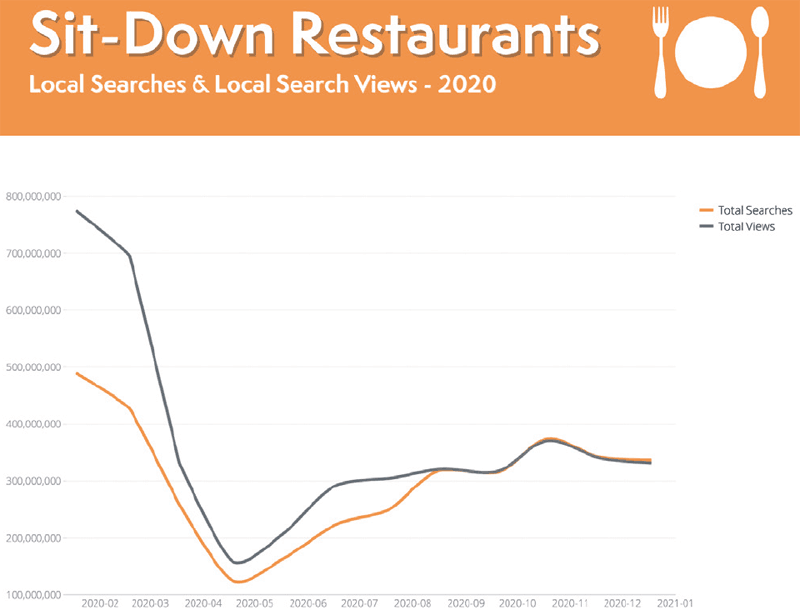 Source: Rio SEO internal data for 141 enterprise brands (100+ locations), January 1, 2020 to December 31, 2020
Source: Rio SEO internal data for 141 enterprise brands (100+ locations), January 1, 2020 to December 31, 2020
Retail
Retail was one area of local that was able to keep performing during the pandemic.
Advertisement
Continue Reading Below
Clicks saw the smallest dips compared to other sectors and the rising trend in clicks continues to grow.
“From October-December 2020, total views had surpassed pre-pandemic levels. Total searches have also been trending upwards, reaching their peak in December 2020 due in large part to holiday shopping. Of all verticals, retail experienced less turbulence than other verticals affected by COVID-19.”
Healthcare
Healthcare started the pandemic with declines just like other niches.
However, the sector as a whole has continued to regain views and searches beginning in June 2020.
Clicks and to phone calls and to websites did exceptionally well and nearly reached pre-pandemic levels.
Advertisement
Continue Reading Below
Hospitality
The hospitality sector was crushed at the beginning of the pandemic but managed to stage a modest rebound beginning in June. But the trends were indicative of fewer consumers.
According to the report:
“By June both searches and views started making a slow comeback, and have remained steady since.
While fewer consumers may have been searching and viewing hotel listings, the ones who were were taking action in the early part of 2020 and then again July through September.”
Local Search & Consumer Behavior
It’s clear that the pandemic caused long lasting changes to user behavior in how users were interacting with maps and business listings to contact and do business with local businesses.
Advertisement
Continue Reading Below
What’s of particular interest in terms of a takeaway is that it’s important to monitor user behavior in order to better respond to swiftly changing local search consumer trends.
Citation
Search Engine Journal readers can download the full report for more insights:
An In-Depth Analysis of Google My Business Insights Trends in 2020

